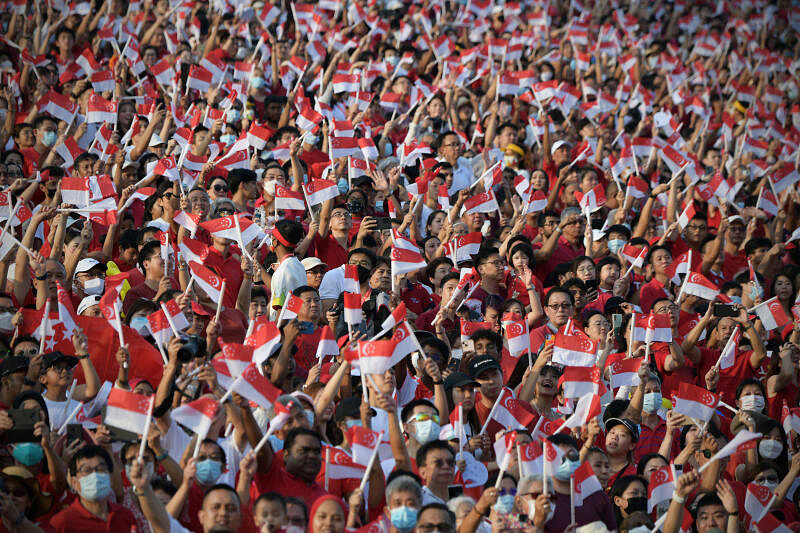NDR 2022: Stronger national identity, staying open and connected among S'pore's 'enduring imperatives', says PM Lee
Sign up now: Get ST's newsletters delivered to your inbox

The Forward Singapore exercise will engage citizens on shaping and strengthening Singapore's social compact for its next phase.
ST PHOTO: NG SOR LUAN
Anjali Raguraman , Anjali Raguraman
Follow topic:
SINGAPORE - As Singaporeans are exposed to persuasion, propaganda and misinformation, strengthening the country's national identity and understanding where our national interests lie are imperative, said Prime Minister Lee Hsien Loong.
Taking pride in being Singaporeans and having a stronger sense of national identity was among three "enduring imperatives" that PM Lee highlighted in his National Day Rally speech on Sunday (Aug 21).
"Singaporeans are being exposed to all sorts of persuasion and propaganda, misinformation and agitation, not least on social media and messaging apps, more so in a world riven by rivalries and tensions, with countries coming under pressure to support one side or the other," noted PM Lee, echoing what he said in his Mandarin speech.
"We need a strong sense of national identity to hold us together and give meaning to our nation building."
He hopes this will be one of the outcomes of the ongoing Forward Singapore exercise.
Launched by Deputy Prime Minister Lawrence Wong on June 28, the nationwide exercise will engage citizens on shaping and strengthening Singapore's social compact for its next phase.
Spanning a year, it will conclude with the publication of a report in mid-2023 which will set out policy recommendations and highlight how different segments of society can contribute towards these shared goals.
While it will be led by DPM Wong , the exercise will have six pillars headed by his fellow fourth-generation leaders in areas such as jobs, housing and health.
Building a world-class talent pool in Singapore was also highlighted by PM Lee.
"We need to focus on attracting and retaining top talent, in the same way we focus on attracting and retaining investments," he said.
He also said Singapore needs to remain open and connected to the world despite waning globalisation and countries turning inwards and protectionist in their policies.
"It is impossible for us to grow or make everything we need ourselves, nor can we consume everything we produce, whether computer chips or pharmaceuticals or petrochemicals," he said.
"To make a living, we will always require foreign investments, overseas markets, and excellent transport and communications links with all parts of the world."
He added that while international tensions and uncertainties make remaining open and connected harder, countries will still need to conduct business with each other; multinational corporations will still look for places to sink their investments; and hubs for finance, communication and transport will still be needed by the world.
"If we are nimble and enterprising, we will get our share of these and more," he said.

